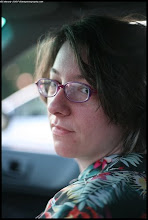The Doctor (fourth incarnation), traveling by transmat beam with Sarah and Harry in tow, is intercepted and redirected to the distant past of the planet Skaro, where the long war of attrition between the Kaleds and the Thals is just about to lead to the creation of the Daleks by the Kaled chief scientist Davros, who considers them the only hope for the ultimate survival of his race. A mysterious Time Lord instructs the Doctor to prevent the Daleks from ever coming into existence, or failing that, to introduce changes into their programming in order to make them less aggressive creatures.
 The Time Lord considers this a service to the future, preventing the carnage and destruction of the many Dalek wars and conquests. The Doctor calls it genocide, and accepts the assignment under duress, having no way to get back to the TARDIS except by the time ring he is offered in exchange for completing the mission.
The Time Lord considers this a service to the future, preventing the carnage and destruction of the many Dalek wars and conquests. The Doctor calls it genocide, and accepts the assignment under duress, having no way to get back to the TARDIS except by the time ring he is offered in exchange for completing the mission.Of course, the real creator of the Daleks was on hand here as well, since Terry Nation wrote this six-part serial to anchor Tom Baker's first season as the Doctor. It was also the first season with Philip Hinchcliffe as producer and Bob Holmes as script editor, and they wasted no time in trying to take the show in a darker, grittier, more grownup direction; this particular story is unremittingly grim. It's a thoroughgoing retcon of the Daleks' origin; Davros had never before been alluded to, much less named, and the humanoid race that gave rise to the Daleks had previously been called the Dals, not the Kaleds.
As always with a six-parter, there's a bit of stretching to fill the time, elaborate escape attempts that go absolutely nowhere, and so on. But Davros is a brilliant creation, and it was inspired casting to have him portrayed by Michael Wisher, who had provided Dalek voices in a couple of previous serials. He's genuinely frightening, and never more so than when he's calmly contemplating the intellectual exercise of whether, having created a virus that would destroy all life, he would then use it. (Spoiler: He would.)
I am pleased that the library where I work has started to get some of these classic Doctor Who serials. Mostly 4th Doctor so far, with a little bit of the 5th Doctor for good measure; I'll have to suggest some good 3rd Doctor stories next.


